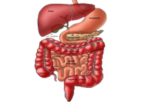BPS Bioscience
 |
||
BPS biedt een van de grootste selecties unieke recombinante eiwitten en testkits voor epigenetisch onderzoek, immuuncontrolepunten, metabolisme en celsignaalroutes om de menselijke gezondheid te verbeteren.
Klonen en expressie: BPS Bioscience's Molecular Biology Services team kan u helpen bij het bereiken van elk moleculair biologisch onderzoeksdoel dat u probeert te bereiken. Onze diensten voor het klonen van genen en gerichte mutagenese zijn vaak de eerste stap in projecten voor eiwitexpressie op maat, analytische ontwikkeling en de ontwikkeling van aangepaste cellijnen.
Zuivering en eiwitmodificatie: Kies BPS Bioscience voor uw behoeften op het gebied van eiwitten, reductie, zuivering en modificatie. Met behulp van onze diensten voor klonen en expressie kunnen de constructen worden geoptimaliseerd voor zeer zuivere eiwitexpressie met hoge prestaties. We zijn ook gespecialiseerd in het labelen van eiwitten om verbeterde producten te leveren voor testen van hoge kwaliteit.
Ontwikkeling van cellijnen: Laat onze experts u helpen tijd en complexiteit te verminderen met onze diensten voor de ontwikkeling van stabiele cellijnen. We produceren aangepaste cellijnen voor eiwitproductie en het screenen van samenstellingen. Onze specialiteit in reporter-assays voor immuuncontrolepaden biedt geweldige mogelijkheden voor onderzoek naar co-immunotherapieën.
Testontwikkeling en screeningdiensten: Evalueer belangrijke verbindingen met onze biochemische en celscreeningdiensten. Bespaar tijd door ons toe te staan uw interessante verbindingen te filteren op onze unieke testpanels of IC50-waarden te bepalen met ons portfolio van honderden tests, zodat u zich kunt richten op de voortgang van uw ontdekkingsprogramma van geneesmiddelen.
Website: bpsbioscience.com
| ||

Gastrointestinal cancers
Gastrointestinal cancers are a heterogeneous group of diseases that affect the gastrointestinal tract. They can affect various organs, including the oesophagus, stomach, pancreas, liver, gallbladder, small intestine, colon and rectum. Gastrointestinal cancers are caused by a combination of modifiable and non-modifiable risk factors, such as age, sex, diet, smoking, alcohol consumption, obesity, family history and chronic infections.
Each variant of gastrointestinal cancer has unique characteristics, often related to the specific location in the digestive tract.
The molecular biology of gastrointestinal cancers is diverse, involving a range of genetic mutations and epigenetic alterations. These genetic changes can lead to uncontrolled cell proliferation, resistance to apoptosis, and the formation of malignant tumors. Environmental and genetic factors interact in a complex way, contributing to the development of these cancers.
Gastrointestinal cancers present particular challenges because of their heterogeneity and ability to escape the body's normal control mechanisms. Scientific research is focused on gaining an in-depth understanding of the molecular biology underlying these cancers, identifying specific markers and crucial signaling pathways. Research continues to explore new avenues to better understand the biology of gastrointestinal cancers, paving the way for significant breakthroughs in future prevention and treatment.
Select the cells below to find the most commonly used cell lines complete for each specified cell type.




